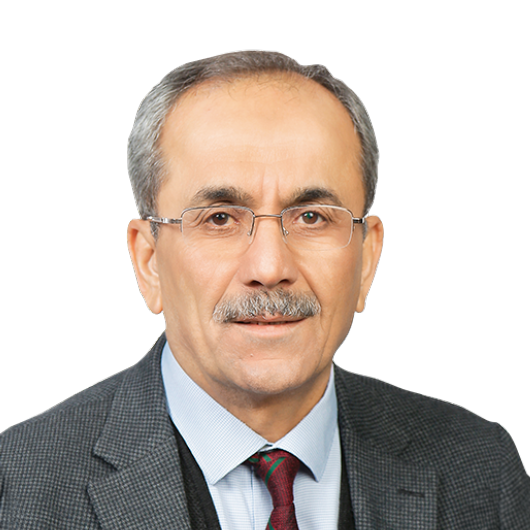We may be acquainted with the imperial region and its history, yet this does not mean that we have a certain perspective. Statements questioning what business we have in Syria, the Middle East quagmire, and Mustafa Kemal Atatürk’s politics, neither indicate knowledge nor perspective. As a matter of fact, a man wandering for years “in the snowy beech forest at night” without knowing what he seeks, having no knowledge of the olive trees in his region is the fundamental problem. We have a profile of intellectuals who haven’t the faintest idea where they are going and what they are seeking. Despite having made room for themselves through children far away for years, they have no shame in turning their backs to millions of Syrian children with the excuse of “religious fundamentalism.” Such cruelty! This is our region; this is the Mediterranean; this is Idlib; this is the land of the olive tree; this is Islamic territory and the millions who die or forced to flee are our people.
We are going through a period that staggeringly leads even international companies to collapse, let alone states. Iraq, Syria, Libya and other places are being subjected to unprecedented attacks. The Islamic region is disintegrating once again and this will, God forbid, end up leading to Anatolia. Making reference to Atatürk and his foreign policy at a such a time and accusing Turkey of being adventurous is displays ignorance about history and excluding oneself from it. Being left out of history is not our region’s destiny. They should have known that Atatürk was closely following the developments in Hatay and Syria. However, the matter is neither about Atatürk nor his foreign policy. This is because they too know that during the time, Atatürk did not turn his back on the region or Syria. However, it still needs to be conveyed.
Refik Halit Karay, a prominent author and journalist, was on the list of 150s and was exiled. The morality of the exile incident is a separate topic of discussion. However, according to Şefik Aktaş, who penned Karay’s biography, as a result of a series of mistakes Refik Halit had also caused, he found himself being exiled despite not directly opposing the national struggle. Refik Halit, who lived in Syria for a long time, was a journalist in the nationalist Vahdet newspaper that started to be published in Aleppo after 1928. Back in those years, Syria was ruled by the French mandate administration system. As is known, a great uprising movement had started in 1925 against France. This uprising was suppressed by the French in an extremely bloody manner. At the time Refik Halit started writing in the pro-nationalist newspaper the uprising had recently been suppressed.
Şerif Aktaş states that Refik Halit was in contact with Ankara and that he received somewhat significant aid from Ankara. It is clear that Atatürk supported this newspaper that was published in Aleppo and its writer. Refik Halit has an important role in Atatürk’s Hatay policy. Refik Halit, whose pro-Turkey articles were published in the French mandate-ruled Aleppo in the 1930s, the period leading to World War II, contacted the Turkish youth in Hatay and carried out operations aimed at the region joining Turkey. His crossing over to Turkey coincides with the time Hatay left the French mandate-ruled Syria.
How had the dissolution process of the imperial region reflected on our literature? What was our reaction in the face of the Great War? Brief and shortcut answers to these questions will be misleading. It is clear that Zülfü Livaneli, a Turkish musician, author, poet, and politician, and those like him give brief and shortcut answers and become estranged from the region. It can be derived from the chapter titled “Allaha Ismarladık” (Farewell) in Falih Rıfkı Atay’s book, “Zeytindağı” (Mount of Olives), that the struggle was in vain. However, this would not be a correct interpretation. Ankara’s interest in Syria had never ceased. The French mandate administration ended in 1946. Soon after, nobody paid attention to those who hoisted the Turkish flag on Aleppo fortress and expressed interest in joining Turkey. İsmet İnönü, who had served as the president of Turkey for a great many years, did not have the same perspective during Atatürk’s period. Much had changed now. There was an Ankara that rejected an aid request from Skopje and passed on the list of names to the executioner.
The French had raided Damascus in 1925 with cannon fire and burned it down. We have comprehended that Assad is a greater tyrant than the French. We are talking about an oppressor who rains death over his people. Those like Zülfü Livaneli are filled with such anger and hatred that they disregard such tyranny that is dragging millions of people to death. It is true, Hiroshima should have been lamented, but are the children of Aleppo not human? Are the millions in Idlib marching towards death, famine and the cold abandoned simply because of their religious faith?
But Turkey has changed. Today, there is an Ankara that is striving to recover the entire region.




















